Indigenous Knowledge and Wisdom Award
To recognise and celebrate indigenous peoples’ knowledge and wisdom.
Run in partnership with Be The Earth Foundation and The Savitri Trust.
In a world shaped by (historic and current) oppressive colonial and patriarchal structures, this award honors the necessity and relevance of traditional and ecological knowledge, as well as ancestral and indigenous nature-based practices.
Prize Recipients for 2025
The Awards went to three recipients sharing a prize fund of £20,000.
Below are the recipients and other short-listed projects.
Award Recipient
Assentamento Terra Vista
The struggle for access to land is a constant in Brazilian history, from the first indigenous revolts to the emergence of the Landless Workers’ Movement (MST). From the 1980s onwards, the struggle for agrarian reform gained momentum with the MST leading land occupations and defending social justice. With over a million members, the MST is the largest social movement in Latin America and plays a key political role in Brazil.
The Terra Vista settlement, in the municipality of Arataca, Bahia, was a historic achievement for the MST. The movement occupied and secured the land for social purposes in 1994, after five evictions and facing opposition from the region’s colonizers and landowners. In 2000, Terra Vista began an agro-ecological transition, reforesting the land, abandoning chemical inputs and adopting regenerative practices, such as the cacao-cabruca agroforestry. The resulting recovery of 92% of the Aliança River’s riparian forest and 80% of the springs has strengthened the local ecology, as well as eradicating hunger in the settlement.
Despite these important achievements, the settlement faces challenges in expanding and deepening the use of agroecology due to a lack of resources, technical assistance and adequate education.
According to indigenous and quilombola principles, the regeneration of a territory is considered inseparable from the regeneration of the communities that live in it. Agroforestry challenges the logic of industrial agriculture and preservationist environmental conservation, integrating ecological regeneration, human participation and sustainable food production.
- Community, Ecosystems
- 2025
- Indigenous Knowledge and Wisdom Award
Project information
- Portuguese
- https://teiadospovos.org/
- https://www.facebook.com/ass.terravista.atv/?locale=pt_BR
- https://www.instagram.com/ass.terravista/?hl=en
- Terra Vista Settlement, Avenida Beira Rio, s/n Arataca BA 45695000 Brazil
Award Recipient
Organizacion Ecologica Sol y Verde
Organización Ecológica Sol y Verde is a grassroots, regenerative and educational non-profit working in a rural and Indigenous context on the edge of the Maya Biosphere Reserve in northern Guatemala.
Sol y Verde’s mission is to protect and restore threatened ecosystems, by supporting climate justice, community resilience and the preservation and celebration of the Indigenous culture it is part of. Its work focuses on land-use solutions and stewardship to secure food sovereignty for vulnerable rural communities, particularly women, youth, and Indigenous groups impacted by displacement and climate change.
Its work has focused on the following areas:
- Nature restoration and agroecology – Regenerating endangered ecosystems by reforesting the jungle landscape, propagating and cultivating endangered plant species, and supporting local families to transition to regenerative agricultural practices, particularly through soil restoration and agroforestry.
- Placemaking through bioconstruction – Improving infrastructure with the local community in ways that are accessible, sustainable, and equipped to face ecological and economic challenges through natural materials that are sourced regeneratively and from agricultural land. This means that Sol y Verde almost exclusively uses local and bio-based materials, often considered as waste.
- Community support and wellbeing – Sol y Verde believes community participation is the key to securing long-term change. It provides safe and supportive spaces for women and children to learn new regenerative skills and exchange knowledge about land stewardship and ancestral medicine through practical and creative education. This helps create financial independence, develop strong local social ties and reinforces a sense of belonging.
- Community, Ecosystems, Food, Landscapes
- 2025
- Indigenous Knowledge and Wisdom Award
Project information
- Spanish and English
- https://solyverde.org/
- https://www.facebook.com/orgsolyverde/
- https://www.instagram.com/solyverdeorg/
- organizacionsolyverde@gmail.com
- Aldea Paxcaman Flores Petén, Guatemala
Award Recipient
The Cultural Conservancy (TCC)
The Cultural Conservancy (TCC) is a Native-led non-profit organisation based in San Francisco, California. Founded in 1985, its mission is to protect and revitalise Indigenous cultures through the direct application of traditional knowledge and practices on ancestral lands.
It works with Native/Indigenous peoples locally and globally on community-based projects that are shaped by community requests and guided by the Native Advisory Council of Traditional Knowledge Holders, land-care practitioners, and community leaders. From language revitalisation and traditional carving projects to Indigenous agricultural sciences and traditional land tending, critical to its work is the acknowledgement of the sacred relationship Native peoples have to their lands and waters and the importance of this relationship to their physical, mental, and community health.
TCC is deeply rooted in Turtle Island (North America), with strong connections to Hawai’i, Central and South America, and Moana (the greater Pacific). It also increased its work with California Indian communities, including recognised tribes/sovereign nations, unrecognised tribes, Native organisations, and urban, intertribal Indian communities. It commits to Indigenous youth and elders and promotes intergenerational sharing and knowledge exchange.
Through its flagship Native Foodways Programme and its land project Heron Shadow, it:
- Works to provide safe culturally-rooted spaces.
- Provides access to resources for growing healthy, culturally appropriate foods including through planting, harvesting, processing, distributing, cooking and seed keeping.
- Facilitates community-led transformation for those struggling with food access, land displacement, and physical, spiritual, and cultural health issues.
- Community, Food
- 2025
- Indigenous Knowledge and Wisdom Award
Project information
- English
- https://www.nativeland.org/
- https://www.facebook.com/TheCulturalConservancy/
- https://twitter.com/TCCNativeland
- https://www.instagram.com/culturalconservancy/?hl=en
- tcc@nativeland.org
- P.O. Box 29044 Presidio of San Francisco CA 94129 United States
Bari Wesna
Founded in February 2015, Bari Wesna emerged in response to increasing deforestation and threats to the livelihoods of Amazonian indigenous peoples. The organisation was created with the vision of restoring local ecosystems by integrating ancestral and modern knowledge, with a focus on sustainability and gender equity.
The organisation operates in a highly biodiverse physical environment in the Peruvian Amazon, including territories in Ucayali, Huánuco and Loreto, where indigenous communities face threats such as deforestation, loss of natural resources and the effects of climate change.
Bari Wesna works closely with the Shipibo-Konibo, Ashaninka and Yanesha peoples, encouraging the active participation of the communities in the management of their territories and communal forests. The organisation also promotes sustainable economic practices that generate income for the communities whilst contributing to their well-being and development. without compromising the natural environment.
Since its creation, Bari Wesna has successfully implemented the Sustainable Forests Programme, promoting reforestation of degraded areas and strengthening territorial governance. It has also trained indigenous communities in sustainable resource management and developed key partnerships with local and international organisations.
- Community, Ecosystems
- 2025
- Indigenous Knowledge and Wisdom Award
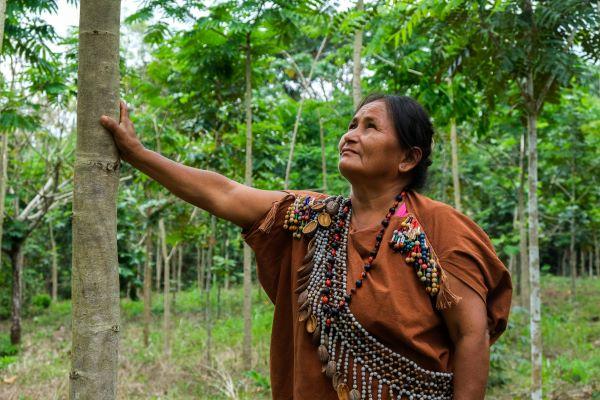
Project information
- Spanish
- https://bariwesna.org/
- https://www.facebook.com/bariwesna
- https://x.com/bariwesna
- https://www.instagram.com/bariwesna/
- Jr. Lirio Garcia Mz3 Lt14 - Husares del Perú - Yarinacocha Pucallpa Peru / Province of Coronel Portillo / Ucayali 25000 Peru
Colectivo de Mujeres del Gran Chaco Americano
The Colectivo de Mujeres del Gran Chaco Americano aims to support women in their territories by occupying spaces and places that promote peer-to-peer training and the circulation of knowledge using information technologies, intercultural communication and connectivity.
The organisation works across the American Chaco region located in Bolivia and Paraguay: a region with huge physical, economic and social-cultural diversity, and with large areas facing transport and mobility issues and limited communication and connection.
Small rural and indigenous women producers – mainly Guaraní and Wichis – work on a family scale in agricultural production and handicrafts. They often lack water, face insecurity of land tenure, environmental threats and are forced to relocate.
Over time, spaces have emerged that allow for the exchange of knowledge and experiences; offering spaces for listening and dialogue that cross geographical borders.
Colectivo de Mujeres del Gran Chaco Americano seeks to strengthen these spaces and catalyse journeys and more exchanges between women.
It seeks also to hold more regular tri-national meetings for:
- Supporting strategies for the circulation of local knowledge.
- Exchanging experiences.
- Political training of its members.
- Joint action in the face of common problems that challenge all women in Chaco.
- It seeks to do all this while respecting and including the differences of each community.
- Community
- 2025
- Indigenous Knowledge and Wisdom Award
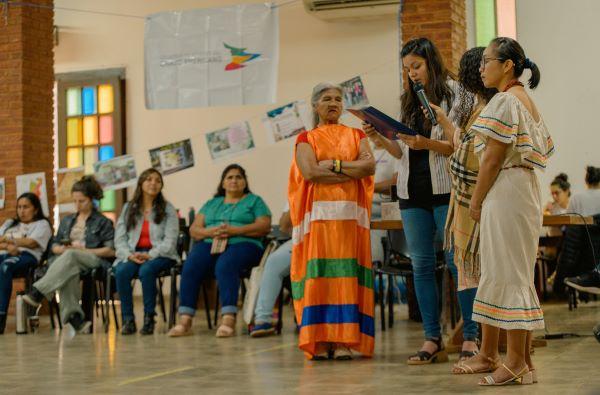
Project information
- Spanish
- https://colectivomujereschaco.com/
- https://www.facebook.com/colectivomujeresdelchacoamericano
- https://x.com/ColectivoGran
- https://www.instagram.com/colectivodemujeresgranchaco
- Paraje Rural Los Socavones Department Tulumba Cordoba 5244 Argentina
Colectivo Suumil Móokt’áan
Colectivo Suumil Móokt’áan is a Mayan family collective located in Sinanché, Yucatán, Mexico. The collective lives in a coastal area that has been devastated by henequen (agave) monocultures and has experienced a massive abandonment of the countryside by people moving elsewhere.
Founded in 2020, its work seeks to create conditions that allow young people to stay in the community and build meaningful livelihoods aligned with Mayan culture. The organisation began the construction of its Mayan solar project in the midst of the Covid pandemic, a project which offers a space for intergenerational learning and reclaiming ways of living as Mayan people.
Since then, Colectivo Suumil Móokt’áan have created different spaces and initiatives that offer learning opportunities, including:
- A seed house, which stores 100 varieties of native seeds, a nursery and a vegetable garden.
- Two ecological dry toilets and a 20,000 litre rainwater harvesting system made of ferrocement that feeds the vegetables and plants.
- A collective kitchen where knowledge and flavours are exchanged.
- A multi-purpose palapa where different meetings, gatherings and workshops are held.
- One hectare of land is being used to promote a syntropic agroforestry system, with around 200 different plants.
These spaces highlight how the ways participants’ grandmothers and grandfathers used to live are still valid, enabling intergenerational learning of practical and rooted knowledge of daily life around the care of the territory, health and food sovereignty.
- Community, Ecosystems, Food
- 2025
- Indigenous Knowledge and Wisdom Award
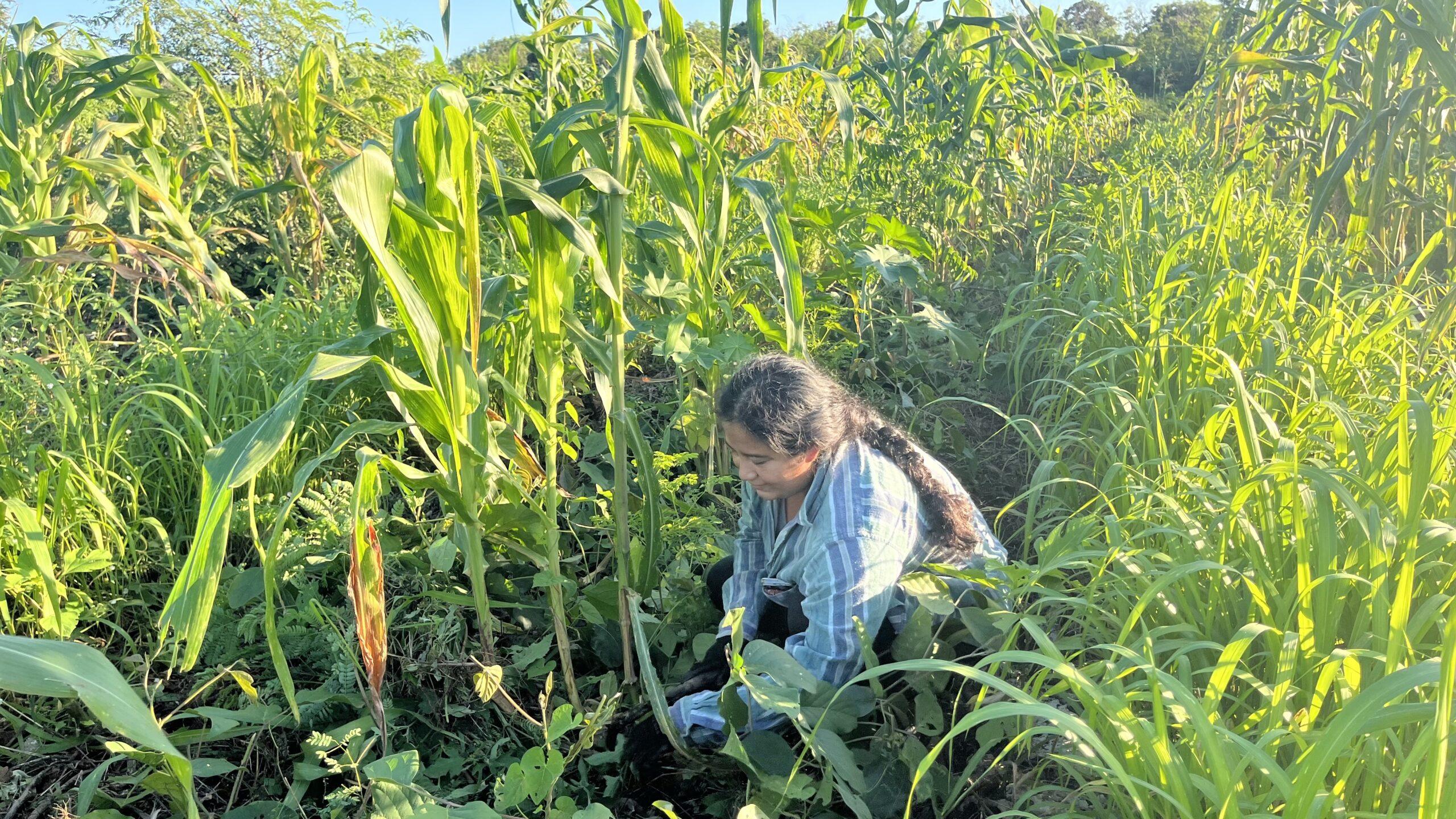
Project information
- Spanish
- https://suumilmooktaan.org/
- https://www.facebook.com/ColectivoSuumil/
- https://www.instagram.com/colectivosuumil/
- Street, 12 #100 Sinanché, Yucatán, Mexico
Huaynakana Kamatahuara Kana
Extractivism represents a constant threat to the Kukama territory in Peru and the loss of the Kukama peoples’ cultural identity.
The Kukama people conceive of the territory as a whole and women having an intrinsic connection to it. The term “kukama” for example is composed of two words: “ku” meaning ‘field’ and “kama” meaning ‘bosom,’ and it signifies ‘field-bosom’ or ‘nourished by the field.’ Given the Kukama peoples’ lives are reliant on the forest ecosystems of the lower basin of the Marañón River, and considering how they have adapted and coexisted with them for decades, the territory and the rivers are inseparable from their culture and way of life. They consider the rivers to be living beings with spirits, and therefore sacred.
Founded in 2001, Huaynakana Kamatahuara Kana embarked on a long journey of collective actions, protests, and mobilisations in pursuit of environmental justice as the river’s health declined as a result of extractive industries.
In September 2021 Huaynakana filed a constitutional lawsuit to urge Peru to recognise the Marañón River as a living being and subject of rights. In March 2024, the provincial court of Nauta ruled that the Marañón River has intrinsic rights, including the right to flow, to be free from pollution, and to be restored to environmental health. This decision also recognised Indigenous communities as the river’s legal representatives, defenders, and guardians. This landmark ruling was ratified by the higher court last November.
Huaynakana plays a key role in defending the Marañón’s rights and supporting the regeneration and conservation of the waterways through reforestation efforts because without the river, these unique forests cannot exist.
- Community, Ecosystems, Landscapes, Water
- 2025
- Indigenous Knowledge and Wisdom Award
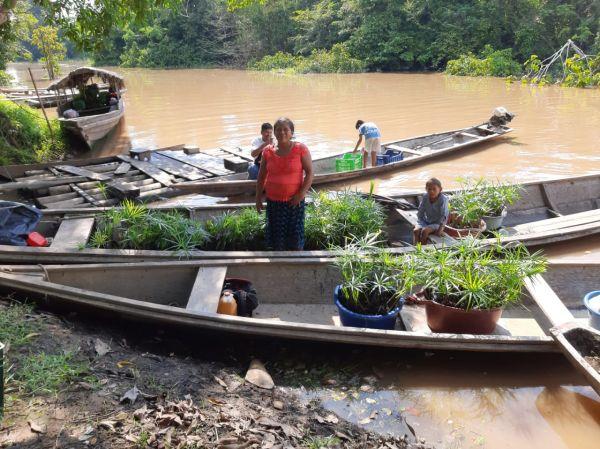
Project information
- Spanish
- https://www.facebook.com/huaynakana
- Parinari Native Community Parinari District Loreto Province/Loreto department 16571 Peru
Indigenous Women and Girls Initiative
The Indigenous Women and Girls Initiative (IWGI) is a community-based organisation working to empower Indigenous pastoralists in Baringo County, Kenya.
The organisation aims to transform the livelihoods of indigenous peoples in Baringo and beyond through agroecology and permaculture, enhancing community resilience to climate change. By fostering sustainable practices and advocating for gender equality, it aims to create a world where indigenous women and girls can thrive with dignity and respect.
Its key activities include:
- Agroecological training: equipping community members with the knowledge and skills to adopt more sustainable farming methods.
- Community gardens: promoting food production, nutrition, and biodiversity conservation.
- Women’s empowerment: including leadership training, vocational skills development, and access to financial services.
- Climate change adaptation: supporting communities in developing climate change adaptation strategies, such as drought-resistant crop varieties and rainwater harvesting techniques.
- Policy advocacy: advocating for policies that support Indigenous rights, gender equality, and sustainable development.
IWGI has so far trained over 87 farmer leaders and their communities in agroecological practices. It has also established 30 community gardens and three agroforestry centres.
- Community, Ecosystems, Food
- 2025
- Indigenous Knowledge and Wisdom Award
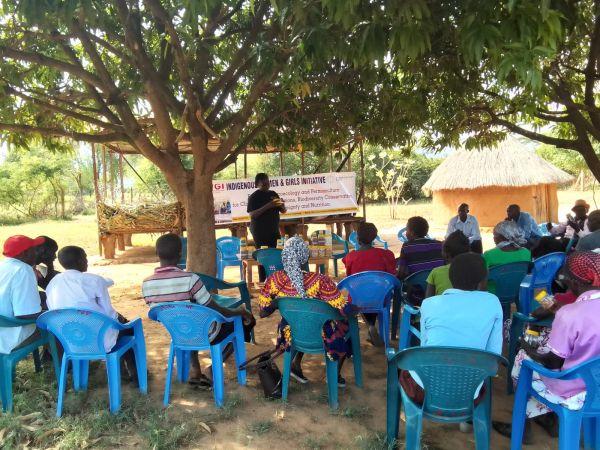
Project information
- English
- https://iwgi.or.ke/
- https://www.facebook.com/NetworkofIndig1?_rdc=1&_rdr
- https://x.com/NetworkofIndig1
- https://ke.linkedin.com/in/indigenous-women-and-girls-initiative-a28855279
- 151 Marigat Rift Valley 30403 Kenya
Indimbo
Indimbo means “threads” in the guaraní language. The indigenous women of Bolivia’s Indimbo Cooperative weave threads to restore their communities, their culture, their forests and their “yandereko” – their way of living as a guaraní nation in harmony with nature.
Threads bind together a line of household products – belts, bags, shirts, pillow covers and jewellery – created by the women of Indimbo. In these weavings, the history and values of the guaraní are shared; the designs capture the stars, flowers, fish, birds and other animals through which they communicate guaraní culture and mythology.
In 2022, ten guaraní women birthed the cooperative, which has grown to almost 100 women from six indigenous communities. Indimbo is a bio-economic initiative that improves the quality of life of the guaraní women and their children while at the same time taking care of the forest, the main source of materials, food, energy and inspiration for the handicrafts they produce.
The guaraní believe that the dry Chaco Forest, the Parapetí “Yande Yari” (grandmother) River and all her ecosystems and threads are alive and must be protected from the greatest and most intense threats. Indeed, Yande Yari must ultimately be restored to her natural state. An integral part of the Indimbo initiative has therefore been the restoration and conservation of almost 10,000 acres of forest along the Parapetí river.
As Indimbo works to become financially independent, the cooperative has been supported technically and financially by the Natura Bolivia Foundation and by the Autonomous Indigenous Government of Charagua Iyambae.
- Community, Networks
- 2025
- Indigenous Knowledge and Wisdom Award
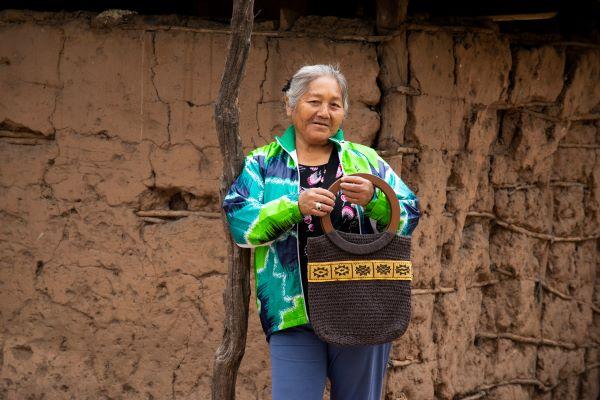
Project information
- English
- https://www.naturabolivia.org/
- https://www.facebook.com/fundacionnaturabolivia
- https://x.com/naturabolivia
- https://www.instagram.com/fundacionnaturabolivia
- mteresavargas@naturabolivia.org
- Calle Río Totaitu, Las Palmas, Santa Cruz de la Sierra, Bolivia
Meli Bees Network
The Meli Bees Network is an Indigenous-led and founded organisation, born out of a critical need to combat the devastating effects of deforestation and environmental degradation in the Amazon.
Meli is based in Germany, founded by an Omágua from Brazili who resides in the European country. Since its founding with Amazonian communities four years ago, the Network has expanded its operations across Brazil and into communities in Spanish-speaking Latin America, with its most engaged communities in Brazil, Peru, and Mexico. Meli centres on empowering Indigenous Peoples and local communities to reclaim their autonomy, strengthen stewardship over their territories, and amplify their voices on a global stage, all within the framework of climate justice and resilience. Meli believes that those most connected to the land hold the solutions to the environmental crises we face.
Its impact now reaches close to 100 Indigenous and local communities. It connects community leaders with vital resources – whether it’s funding or capacity-building opportunities – equipping them to spearhead projects that not only protect their territories but also enhance sustainable land management and improve lives. Through these efforts, it has built a thriving network that transforms local knowledge and action into global impact.
In each community, the network finds strength in the deeply rooted connection to the land. Meli show the world that living in harmony with nature is not just possible, it is essential. It believes that every tree, every plant, is a reflection of who we are.
- Community, Ecosystems, Networks
- 2025
- Indigenous Knowledge and Wisdom Award
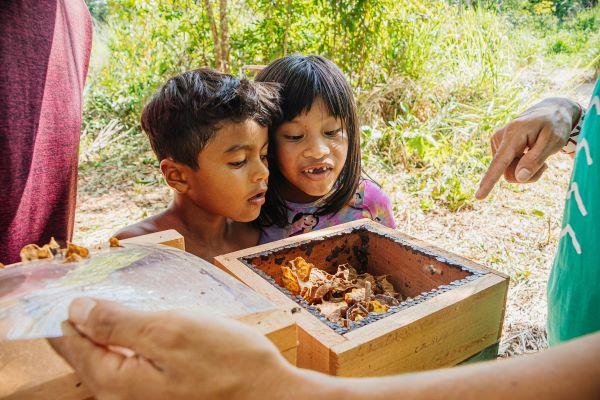
Project information
- English and German
- https://www.meli-bees.org/
- https://www.facebook.com/beesmeli
- https://x.com/meli_bees
- https://www.instagram.com/meli_bees_
- Im Grund 26 Ochsenhausen Baden-Württemberg 88416 Germany
Naga Indigenous Peoples Food Foundation
When the founder of Naga Indigenous Peoples Food Foundation moved away from their home in Manipur in search of better opportunities, they tried to recreate their mother’s healing broth. They bought the same ingredients from the market, but it never tasted the same, not even close. They later conducted research that compared ingredients and discovered that the rich biodiversity of the Indo-Burma Biodiversity Hotspot, home to the Naga Indigenous people, was the key to that distinct flavor.
This realisation inspired them to preserve this sustainable food system and to establish Naga Indigenous Peoples Food Foundation, with the aim of economically empowering indigenous farmers who often do not receive fair compensation for their produce.
The foundation involves the Tangkhul Naga Peoples and aims to document Indigenous knowledge, raise awareness, and collaborate with local communities, knowledge centres, and government bodies to empower food producers while ensuring their practices are respected and valued.
Over the next five years it seeks to develop a network of 10,000 empowered farmers, serving as a sustainable business model for sustainable food systems. It aims to represent indigenous peoples in regional, national, and international advocacy efforts, highlighting the importance of biodiversity and indigenous knowledge in food production.
- Community, Food
- 2025
- Indigenous Knowledge and Wisdom Award
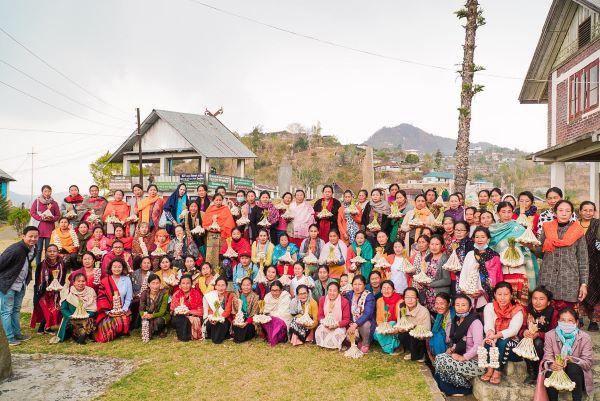
Project information
- 472 khuilungtang dungrei ukhrul manipur dungrei Manipur 795142 India
Queensland Indigenous Women Ranger Network
Australia’s Indigenous Rangers (land stewards) are vital: bringing together ancient knowledge, passed down from generation to generation, with modern tools like drones that monitor coral changes, forest fires and land degradation. Their work is highly valued as they achieve both environmental and employment outcomes, alongside wider social, cultural and economic benefits.
Indigenous Ranger Programs have created more than 2100 jobs in land and sea management around Australia since 2007 and yet in Queensland only 20% of Indigenous rangers are women. That’s where the Queensland Indigenous Women Rangers Network (QIWRN) comes in.
Established in 2018, QIWRN provides a forum for Indigenous women rangers to:
- Share their experiences, ideas and information.
- Provide support and advice to one another.
- Make connections in remote and isolated communities.
The network has helped build the next generation of women rangers and is helping to increase the number of Indigenous women caring for and regenerating their Sea Country (the sea and coastal environment), with very limited resources. Despite the lack of funds, the programme has trained over 240 women, encouraging new conservation approaches by sharing knowledge and telling stories. Members of the network have gone on to find work as rangers in Queensland or in conservation elsewhere.
Indigenous peoples make up less than 5% of the human population. But they manage or hold tenure over 25% of the world’s land and support 80% of global biodiversity. Less than 11% of the global wildlife ranger workforce is female, and so this project believes that scaling approaches to welcoming more indigenous women rangers is more crucial than ever.
- Community, Ecosystems, Networks, Water
- 2025
- Indigenous Knowledge and Wisdom Award
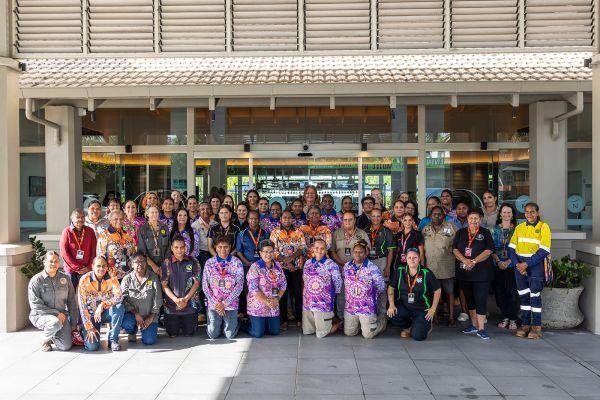
Project information
- English
- https://qiwrn.com.au/
- https://www.facebook.com/QIWRN
- https://x.com/QldWomenRangers
- 142 Charlotte Street Cooktown Queensland 4895 Australia
The Mesoamerican Permaculture Institute
The Mesoamerican Permaculture Institute (IMAP) was founded in 2000 by a group of Maya Kaqchikel community members from San Lucas Tolimán, along the shores of Lake Atitlán, Guatemala.
The founders were deeply concerned about the environmental and social problems that affected so many living beings around the lake. The forced imposition of monoculture cash crops threatened communities’ food sovereignty, reduced land access, and contributed to environmental degradation. These farmers knew their ancestors lived in harmony with nature, stewarding the land and caring for their communities’ food and medicinal needs with native plants. However, colonialism violently wrested those cultural, spiritual, and agricultural practices from communities.
IMAP has worked for 24 years, combining permaculture education with the recuperation and application of ancestral knowledge. It develops knowledge and skills needed to guarantee food sovereignty, community development and biodiversity. IMAP has supported 15,000+ small farmers to produce, harvest, and use native plants and seeds like amaranth and chia in polyculture plots. These plants are better adapted to local conditions and resistant to disease, fighting malnutrition and helping local people become more resilient in the face of climate change.
IMAP believes efforts to support local biodiversity must include:
- Embracing local growing traditions.
- Invigorating the rural economy.
- Preserving Indigenous cultures.
By focusing on food sovereignty – the right to produce and eat wholesome, culturally relevant food – sustainable, agroecological solutions are created that provide sustenance, promote ancestral practices, and support campesino farming based on respect for Mother Earth.
- Community, Ecosystems, Food
- 2025
- Indigenous Knowledge and Wisdom Award
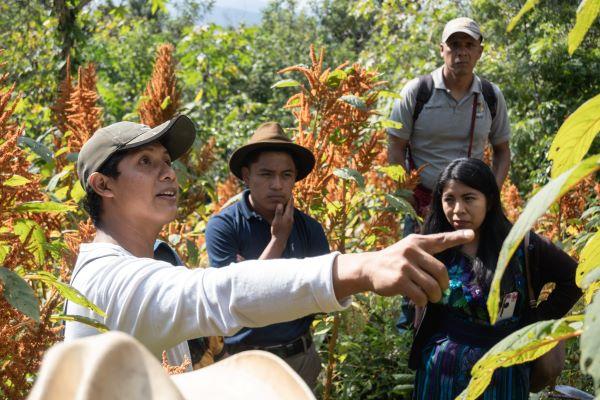
Project information
- Spanish
- https://www.imapermacultura.org/
- https://www.facebook.com/imapermacultura
- https://www.instagram.com/imapguatemala/
- (502) 4549-0578
- imapermacultura@gmail.com
- Caserío Pachitulul, San Lucas Tolimán, Sololá, 07013, Guatemala
Uru Uru Team
The Uru Uru Team is an indigenous women-led group from the Aymara community in Bolivia. It is dedicated to the restoration of ecosystems through a blend of traditional knowledge, community empowerment and scientific innovation.
The team was founded in 2021 to act as a steward of Lake Uru Uru, a vital water source that has faced significant ecological degradation due to pollution, climate change, and overexploitation of resources. The team collaborates closely with local indigenous communities to implement nature-based solutions, particularly through restoration of native aquatic plants, which play a critical role in water purification and maintaining the lake’s ecosystem.
Bolivia’s Andean highlands, where the team operates, presents a challenging physical environment characterised by extreme weather and fluctuating water levels due to climate change. The social context includes a deep connection between indigenous communities and their land, but these communities often face marginalisation and lack access to resources and opportunities. Economically, the region is characterised by poverty, with many families relying on agriculture and fishing for their livelihoods, both of which are threatened by the lake’s degradation.
Since inception, it has:
- Initiated the restoration of the lake’s ecosystem by planting and monitoring native aquatic plants like Totora, which purified water and restored habitats.
- Partnered with schools to educate youth about environmental stewardship, traditional knowledge, and scientific practices, fostering a new generation of indigenous environmental leaders.
- Conducted community workshops focused on sustainable agriculture, helping local farmers integrate eco-friendly practices.
- Community, Ecosystems, Water
- 2025
- Indigenous Knowledge and Wisdom Award
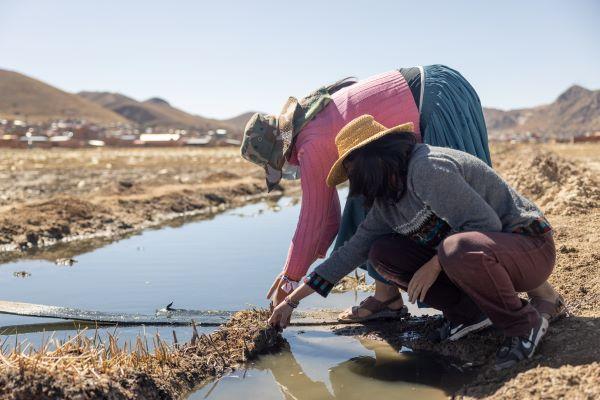
Project information
- Spanish
- https://www.facebook.com/UruUru01/
- https://www.instagram.com/uru_uru_team
- (591) 6959-3336
- 2023uru@gmail.com
- Final Av Dehene s/n Oruro, Cercado, Bolivia